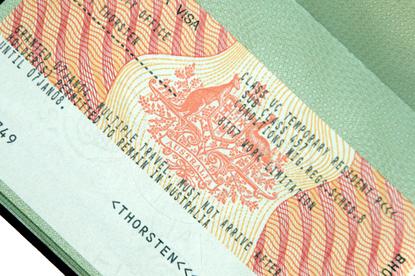IT firms ‘exploiting 457 visa system’ to displace local workers: ITPA
- 22 March, 2017 15:48

The IT Professionals Association (ITPA) claims local tech firms are abusing the 457 visa system by hiring international staff for entry level IT support positions rather than local graduates.
The ITPA is concerned about the growing number of IT organisations that appear to be exploiting the 457 visa system to displace local workers with internationally-recruited IT staff on much lower wages than would be otherwise applicable, said the association's director Martin Hale.
He cited temporary work data from the government's data.gov.au website which suggests there has been an unprecedented rise in 457 visas being issued to IT support workers over the past 10 years.
The data also found that while the overall number of 457 visas issued over the last decade (excluding IT) has risen by just 2 per cent, over the same period there has been a 136 per cent rise in 457 visas issued for IT workers.
Digging deeper, he said the growth rate for 457 visas granted to entry level occupations including systems administration and IT support blows out by over 480 per cent over the decade of 2005/06 - 2015/16.
“The ITPA has no issue with local IT organisations using 457 visas if they are genuinely unable to find suitable local candidates,” Hale said.
“What we are concerned about, however, is that many local IT organisations appear to be using 457 visas to hire international staff to work in entry level IT support positions rather than hiring and developing local graduates.”
Traditionally, Hale said IT support roles have been one of the main entry points for IT graduates to get a career started in the industry.
With the growing number of people now being brought in on 457 visas to undertake these roles, he said it’s not surprising local IT graduates can’t find work, and the number of students studying IT degrees at Australian tertiary institutions has dropped in the last decade.
“What is happening in IT is the equivalent to Australian government deciding to scrap all medical internships at Australian hospitals and bring in surgeons from overseas who are willing to work for half the wages," said Hale.
"If that was the case, the result would be that universities stop offering medical degrees and we would become totally reliant on importing overseas medical staff in our hospitals.”
While Hale recognised that IT is a growth industry and needs to supplement local candidates with suitably qualified internationals for some specialist roles, he noted how the health services sector is also growing and the number of 457 visas granted to health professionals (doctors, nurses) has decreased by over 20 per cent in the same 10 year period.
“To stop abuse of organisations using the 457 visas system to fill systems administration and IT support positions, the ITPA calls on the Department of Immigration and Border Control to make details of all future 457 visa applications for systems administration and IT support positions available, so that we can promote to our members and IT graduates.
“In the interim, the ITPA has asked our membership to advise us of examples of alleged abuses they encounter and if any claims are substantiated, we intend to alert the Immigration Department. If the identified 457 abuses are not rectified we will ‘name and shame’ the IT organisations involved to our 7000 members and the media,” he said.
Indeed, the immigration equation and issue of skilled workers is a hot topic around the globe. In the US, President Trump’s recent controversial immigration policy and travel bans have sparked debate in Australia about the importance of filling the skills gap.
InfoTrust CEO Dane Meah recently called on the Australian government to take advantage of Trump’s controversial immigration policy and help local organisations poach cyber security experts from banned countries.
“We don’t have the depth of skills in country to address the growing need,” Meah told CIO Australia at the time. “There are people in Trump’s banned countries who have those skills and our immigration screening systems have proven highly robust,” he said.
“With such a drastic shortage of cyber security skills in Australia and with Trump about to issue a revised executive order banning entry, we need to be poaching the best and brightest today.”

